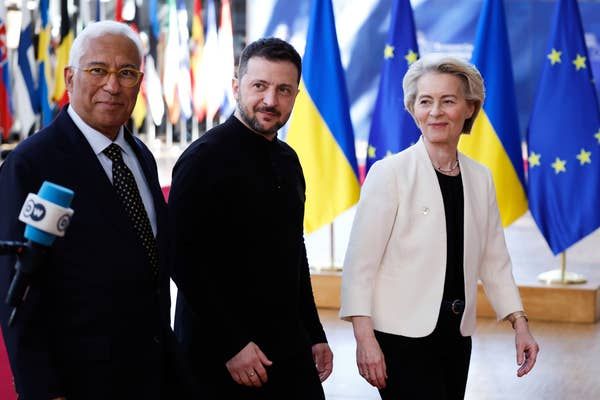Global oil prices surged to a seven year high Tuesday as investors reacted to a deadly attack on oil facilities in the middle east, rising political tensions between Russia and the Ukraine and near-term bets on post-pandemic energy demand.
Houthi rebel troops from Yemen, allegedly aligned with Iran, attacked the Mussafah oil depot outside of Abu Dhabi in the United Arab Emirates on Monday, killing at least three people amid a long-running military dispute with Saudi Arabia. The attack has raised concerns for both an intensified confrontation in the region and a disruption in crude supplies, which are already under pressure from outages and underinvestment in the wake of the global Covid pandemic.
Goldman Sachs, in fact, expects oil prices to trade as high as $100 a barrel later this year as a surge in post-Covid demand meets a dearth of global supply.
"This growing geopolitical risk comes at a time when there is already plenty of concern in the market over the potential impact of an escalation in tensions between Russia and Ukraine," said ING's head of commodity strategy Warren Patterson. "These growing risks, combined with worries over OPEC spare capacity, have meant that sentiment in the oil market has remained bullish."
WTI futures contracts for February delivery, which are tightly-linked to U.S. gas prices, closed $1.56 higher on the session at $85.85 per barrel.
Brent contracts for March, the global pricing benchmark, settled $1.40 higher at $87.88 per barrel.
Exxon Mobil (XOM) shares were marked 0.5% higher, against an anticipated 250 point decline for the Dow Jones Industrial Average, to indicate an opening bell price of $72.20 each. Chevron (CVX), meanwhile, was marked 0.4% higher at $129.50 each.
Last week, the Energy Department said domestic crude stockpiles fell by 4.6 million barrels over the period ending on January 7, nearly triple the consensus forecast, while inventories at the key Cushing, Okla., delivery hub fell by 300,000 barrels, adding upward pressure on oil and gas prices.
The moves also highlight the challenged faced by President Joe Biden, who unveiled plans to release 50 million barrels of crude from the Strategic Petroleum Reserve in late November as part of a coordinated move with China, India, South Korea, Japan and the United Kingdom to tame surging energy costs.
U.S. crude prices, as measured by WTI futures costs, have risen more than 11% since Biden's SPR decision, as similar gain to that recorded in 2011 when President Barack Obama's released 30 million barrels from the SPR to offset supply disruptions linked to the civil war in Libya.







